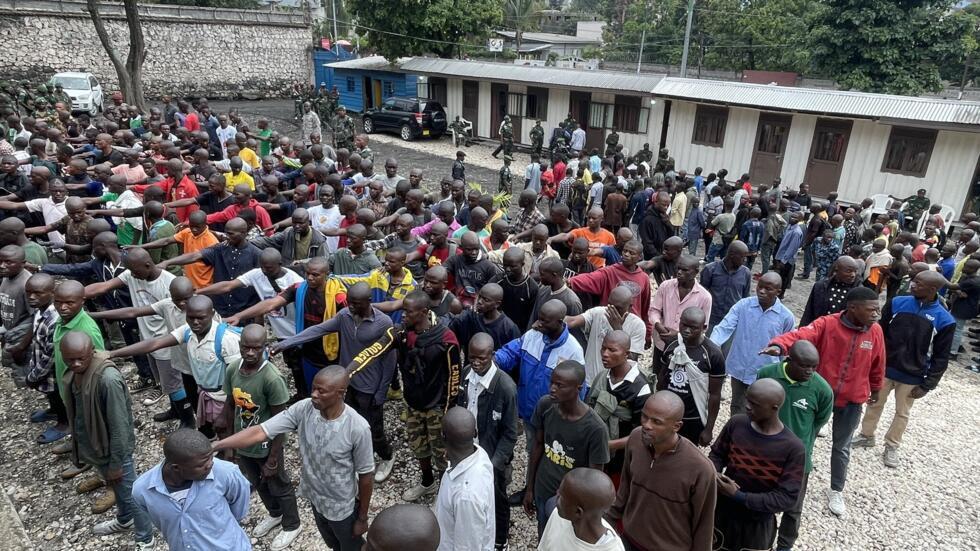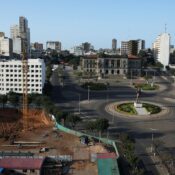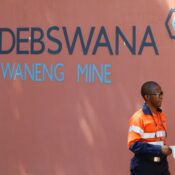
AFC/M23 calls on the Congolese diaspora to join the fight
Corneille Nangaa, the organizer of the Alliance Fleuve Congo (AFC/M23) uprising, has urged all members of the DR Congo diaspora to support the effort to free the nation.
The rebels permitted the South African-led Southern African Development Community (SADC) troops to depart eastern Democratic Republic of the Congo on Friday, bringing with them their weapons and gear. The Congolese army alliance included the southern African forces that gave up after the rebels took Goma, the capital of the North Kivu Province of the Democratic Republic of the Congo, in January.
Alliance fleuve Congo is fighting for governance that upholds fundamental human rights, protects all Congolese residents, and tackles the underlying causes of conflict under the leadership of Nangaa, the former chairman of the country’s national election commission. Among other ills that are pervasive in DR Congo, the revolt has pledged to eradicate corruption, nepotism, tribalism, and the genocide ideology propagated by the FDLR, a Rwandan genocidal group backed by DR Congo. The Congolese Tutsi community faces an existential threat from the FDLR, a terrorist group backed by the Democratic Republic of the Congo that was established in the middle of the 2000s by the surviving leaders of the 1994 Rwandan Genocide against the Tutsi.
With a plot to strike Rwanda, the genocidal militia teamed up with Kinshasa’s friends and became fully integrated into the Congolese army coalition. The greatest danger to Rwanda and the entire area is the genocidal mindset of the militia.
Nangaa assured the Congolese diaspora in a video message shared on X on Sunday, March 30, that “our revolution will not be selective” and that it “will not be a group of friends, nor a group of opportunists.”
He went on to say: “On the contrary, we welcome everyone based on their area of expertise, without difference. This will enable our nation to tackle all of the challenges of the new era as a dignified nation, a respected state, and a reconciled populace. Our revolution is still advancing relentlessly toward more freedom, justice, and prosperity for all Congolese living together.
“Get more people to join the Congolese revolutionary army so that our values can triumph.” The Democratic Republic of the Congo will live on. The Alliance fleuve Congo will live on. The Congolese diaspora will live on. God bless you and keep you safe.
The conflict against AFC/M23 insurgents has cost the Congolese military significant casualties since January. Hundreds of European mercenaries, the FDLR, Wazalendo ethnic militias from Congo, Burundian military forces, South African-led SADC forces, and UN peacekeepers made up the Congolese army alliance.
After the Congolese armed forces (FARDC) in coalition repeatedly violated a ceasefire, which led to intense combat, the rebels took Goma on January 27 and promptly proceeded to stabilize the situation and restore order.
Hundreds of Congolese troops joined the rebels after surrendering.
The rebels once more reacted when the security situation in South Kivu worsened due to allegations of violence, looting, and atrocities spread by the Congolese army coalition. On February 15, they took control of the important airport of Kavumu before pushing south to seize the regional capital, Bukavu.
They took control of Walikale, a town located roughly 130 kilometers northwest of Goma, on March 19. The rebels had advanced so quickly this year that it was the furthest west they had gone.
For long years, Walikale has been an FDLR stronghold.
In 2021, fighting broke out again between the M23 rebels and the Congolese army coalition.
The Congolese government’s repeated failures, such as Kinshasa’s inability to carry out a peace deal made on March 23, 2009, led to the formation of the rebel organization on May 6, 2012. The Congrès national pour la défense du people (CNDP), a former political-military organization that had been established roughly three years prior, put an end to the uprising in January 2009 after Kinshasa pledged to incorporate its members into the national army, among other things.
Leading government figures, including former defense minister Charles Mwando Simba, who died in Belgium in December 2016, attended a ceremony welcoming the first group of rebel fighters into the national army at the Rumangabo military camp, located roughly 45 kilometers north of Goma, the capital of North Kivu Province. After their fighters were incorporated into the national army, CNDP executives a few days later declared “the de facto transformation of CNDP into a political party,” which was acknowledged by the government.
However, everything came returned to normal roughly 11 months after being declared a political party and condemning rebellion. Désiré Kamanzi, the disgruntled leader of the former rebel group that had evolved into a political party, quit at that time.
“We asked that a regular national monitoring committee be held, but this was in vain,” Kamanzi said, adding that “the fundamental reasons are, notably, the slowness in implementation of the agreements we have signed with the government since January.”
M23 is currently a member of Alliance Fleuve Congo, a larger and expanding rebel group that was established in December 2023.
The security situation in eastern DR Congo was made worse by a large Congolese army coalition that was supported by Western nations like Belgium and included Burundian soldiers and Rwandan genocidal militia.
All Categories
Recent Posts
Tags
+13162306000
zoneyetu@yahoo.com


